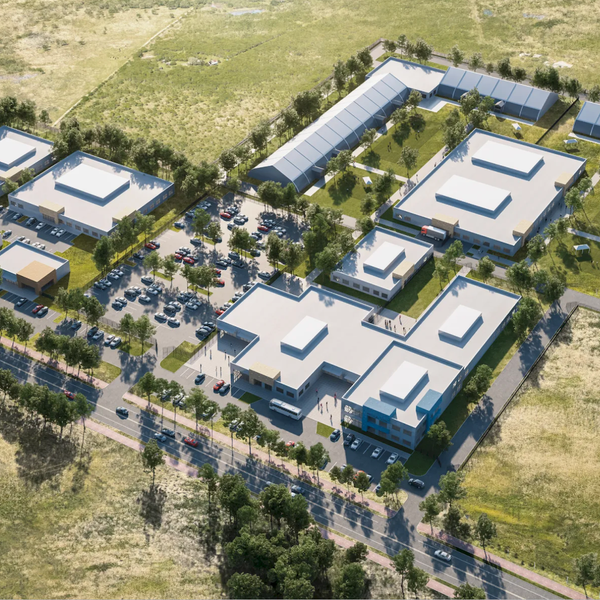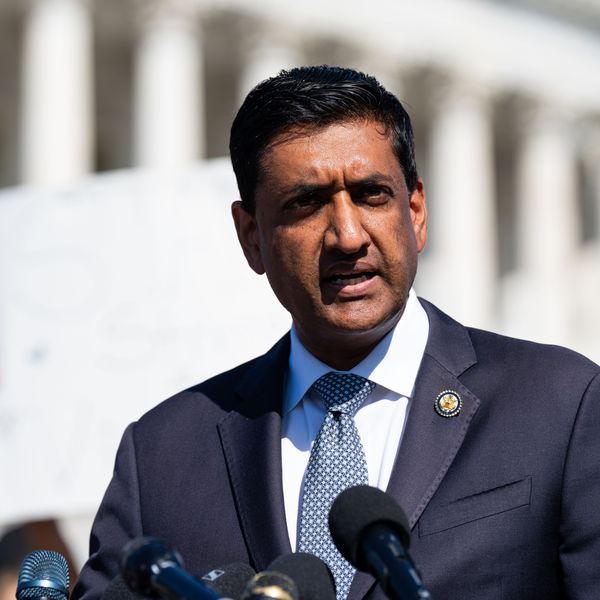Deadly Attacks Across Iraq Leave Scores Dead
Possibly 60 or more killed, hundreds injured
Early morning attacks in Iraq, mostly aimed at police and security forces, have left scores dead today, according to various outlets. The attacks seem drawn along sectarian lines, renewing fears that simmering tensions still hold only months that last US combat troops left the country after a nearly nine year US occupation.
Reuters reports:
Simultaneous early morning attacks on mostly Shi'ite targets across Iraq killed at least 60 people and wounded dozens on Thursday in one of the bloodiest days of violence since U.S. troops pulled out in mid-December.
The attacks that appeared to pitch al Qaeda-linked Sunni Muslim insurgents against Shi'ites raised fears of a return to the widespread sectarian carnage that tore Iraq apart and cost thousands of lives in 2006 and 2007.
The violence breaks weeks of relative calm as Shi'ite Prime Minister Nuri al-Maliki and Sunni leaders have sought to resolve a political crisis that threatened to unravel their power-sharing agreement following the U.S. withdrawal.
At least 32 people were killed in blasts in Baghdad where 10 explosions tore through mainly Shi'ite neighbourhoods during rush hour and other attacks targeted police patrols, commuters and crowds gathered in shopping areas.
The BBC breaks down the violence in Bagdad this way:
- six dead after a car bomb in Shia-dominated Kadhimiya, norht of Baghdad
- six killed by gunmen at a police checkpoint in the Sarafiya district of the capital
- two dead and five injured in an explosion in the western al-Mansour district
- two killed and 10 injured in two explosions in Dorat Abo Sheer, southern Baghdad
- two killed and nine wounded in an attack by gunmen using weapons with silencers, targeting a police patrol in Saidiya, southern Baghdad
- seven injured, most of them policemen, in a blast in al-Madaen, south of Baghdad
- five civilians injured in a bomb explosion in Taji, north of Baghdad
And the Associated Press takes stock of the violence outside of the capital:
Nationwide, security forces appeared to be targeted in at least 14 separate attacks. Officials in Baquba, 35 miles (60km) north-east of the capital, said a suicide bomber blew up his car outside a police station near a market. Two people were killed and eight wounded.
In Kirkuk, 180 miles north of Baghdad, two police patrols were hit by roadside bombs. Twenty policemen were injured in the attacks, said Major General Sarhat Qadir.
Bombs in the town of Tuz Khormato, outside Kirkuk, wounded three guards at the office of a Kurdish political party. And south of Baghdad, eight policemen were wounded by a roadside bomb in the town of Madain.
Iraq's police are generally considered to be the weakest element of the country's security forces. Earlier this week, 20 policemen and recruits were killed by a suicide bomber outside the Baghdad police academy. Angry residents blamed the attack on political feuding.
The country has been besieged by political turbulence since the day US troops pulled out of Iraq, when an arrest warrant was issued for the vice-president, Tariq al-Hashemi, on charges that he commandeered death squads to target security forces and government officials.
Hashemi, the country's highest-ranking Sunni, has denied the charges, saying they were politically motivated and blaming the Shia-led government of trying to unseat him. Experts worry the case will raise Iraq's sectarian tensions.
###
An Urgent Message From Our Co-Founder
Dear Common Dreams reader, The U.S. is on a fast track to authoritarianism like nothing I've ever seen. Meanwhile, corporate news outlets are utterly capitulating to Trump, twisting their coverage to avoid drawing his ire while lining up to stuff cash in his pockets. That's why I believe that Common Dreams is doing the best and most consequential reporting that we've ever done. Our small but mighty team is a progressive reporting powerhouse, covering the news every day that the corporate media never will. Our mission has always been simple: To inform. To inspire. And to ignite change for the common good. Now here's the key piece that I want all our readers to understand: None of this would be possible without your financial support. That's not just some fundraising cliche. It's the absolute and literal truth. We don't accept corporate advertising and never will. We don't have a paywall because we don't think people should be blocked from critical news based on their ability to pay. Everything we do is funded by the donations of readers like you. Will you donate now to help power the nonprofit, independent reporting of Common Dreams? Thank you for being a vital member of our community. Together, we can keep independent journalism alive when it’s needed most. - Craig Brown, Co-founder |
Early morning attacks in Iraq, mostly aimed at police and security forces, have left scores dead today, according to various outlets. The attacks seem drawn along sectarian lines, renewing fears that simmering tensions still hold only months that last US combat troops left the country after a nearly nine year US occupation.
Reuters reports:
Simultaneous early morning attacks on mostly Shi'ite targets across Iraq killed at least 60 people and wounded dozens on Thursday in one of the bloodiest days of violence since U.S. troops pulled out in mid-December.
The attacks that appeared to pitch al Qaeda-linked Sunni Muslim insurgents against Shi'ites raised fears of a return to the widespread sectarian carnage that tore Iraq apart and cost thousands of lives in 2006 and 2007.
The violence breaks weeks of relative calm as Shi'ite Prime Minister Nuri al-Maliki and Sunni leaders have sought to resolve a political crisis that threatened to unravel their power-sharing agreement following the U.S. withdrawal.
At least 32 people were killed in blasts in Baghdad where 10 explosions tore through mainly Shi'ite neighbourhoods during rush hour and other attacks targeted police patrols, commuters and crowds gathered in shopping areas.
The BBC breaks down the violence in Bagdad this way:
- six dead after a car bomb in Shia-dominated Kadhimiya, norht of Baghdad
- six killed by gunmen at a police checkpoint in the Sarafiya district of the capital
- two dead and five injured in an explosion in the western al-Mansour district
- two killed and 10 injured in two explosions in Dorat Abo Sheer, southern Baghdad
- two killed and nine wounded in an attack by gunmen using weapons with silencers, targeting a police patrol in Saidiya, southern Baghdad
- seven injured, most of them policemen, in a blast in al-Madaen, south of Baghdad
- five civilians injured in a bomb explosion in Taji, north of Baghdad
And the Associated Press takes stock of the violence outside of the capital:
Nationwide, security forces appeared to be targeted in at least 14 separate attacks. Officials in Baquba, 35 miles (60km) north-east of the capital, said a suicide bomber blew up his car outside a police station near a market. Two people were killed and eight wounded.
In Kirkuk, 180 miles north of Baghdad, two police patrols were hit by roadside bombs. Twenty policemen were injured in the attacks, said Major General Sarhat Qadir.
Bombs in the town of Tuz Khormato, outside Kirkuk, wounded three guards at the office of a Kurdish political party. And south of Baghdad, eight policemen were wounded by a roadside bomb in the town of Madain.
Iraq's police are generally considered to be the weakest element of the country's security forces. Earlier this week, 20 policemen and recruits were killed by a suicide bomber outside the Baghdad police academy. Angry residents blamed the attack on political feuding.
The country has been besieged by political turbulence since the day US troops pulled out of Iraq, when an arrest warrant was issued for the vice-president, Tariq al-Hashemi, on charges that he commandeered death squads to target security forces and government officials.
Hashemi, the country's highest-ranking Sunni, has denied the charges, saying they were politically motivated and blaming the Shia-led government of trying to unseat him. Experts worry the case will raise Iraq's sectarian tensions.
###
Early morning attacks in Iraq, mostly aimed at police and security forces, have left scores dead today, according to various outlets. The attacks seem drawn along sectarian lines, renewing fears that simmering tensions still hold only months that last US combat troops left the country after a nearly nine year US occupation.
Reuters reports:
Simultaneous early morning attacks on mostly Shi'ite targets across Iraq killed at least 60 people and wounded dozens on Thursday in one of the bloodiest days of violence since U.S. troops pulled out in mid-December.
The attacks that appeared to pitch al Qaeda-linked Sunni Muslim insurgents against Shi'ites raised fears of a return to the widespread sectarian carnage that tore Iraq apart and cost thousands of lives in 2006 and 2007.
The violence breaks weeks of relative calm as Shi'ite Prime Minister Nuri al-Maliki and Sunni leaders have sought to resolve a political crisis that threatened to unravel their power-sharing agreement following the U.S. withdrawal.
At least 32 people were killed in blasts in Baghdad where 10 explosions tore through mainly Shi'ite neighbourhoods during rush hour and other attacks targeted police patrols, commuters and crowds gathered in shopping areas.
The BBC breaks down the violence in Bagdad this way:
- six dead after a car bomb in Shia-dominated Kadhimiya, norht of Baghdad
- six killed by gunmen at a police checkpoint in the Sarafiya district of the capital
- two dead and five injured in an explosion in the western al-Mansour district
- two killed and 10 injured in two explosions in Dorat Abo Sheer, southern Baghdad
- two killed and nine wounded in an attack by gunmen using weapons with silencers, targeting a police patrol in Saidiya, southern Baghdad
- seven injured, most of them policemen, in a blast in al-Madaen, south of Baghdad
- five civilians injured in a bomb explosion in Taji, north of Baghdad
And the Associated Press takes stock of the violence outside of the capital:
Nationwide, security forces appeared to be targeted in at least 14 separate attacks. Officials in Baquba, 35 miles (60km) north-east of the capital, said a suicide bomber blew up his car outside a police station near a market. Two people were killed and eight wounded.
In Kirkuk, 180 miles north of Baghdad, two police patrols were hit by roadside bombs. Twenty policemen were injured in the attacks, said Major General Sarhat Qadir.
Bombs in the town of Tuz Khormato, outside Kirkuk, wounded three guards at the office of a Kurdish political party. And south of Baghdad, eight policemen were wounded by a roadside bomb in the town of Madain.
Iraq's police are generally considered to be the weakest element of the country's security forces. Earlier this week, 20 policemen and recruits were killed by a suicide bomber outside the Baghdad police academy. Angry residents blamed the attack on political feuding.
The country has been besieged by political turbulence since the day US troops pulled out of Iraq, when an arrest warrant was issued for the vice-president, Tariq al-Hashemi, on charges that he commandeered death squads to target security forces and government officials.
Hashemi, the country's highest-ranking Sunni, has denied the charges, saying they were politically motivated and blaming the Shia-led government of trying to unseat him. Experts worry the case will raise Iraq's sectarian tensions.
###

